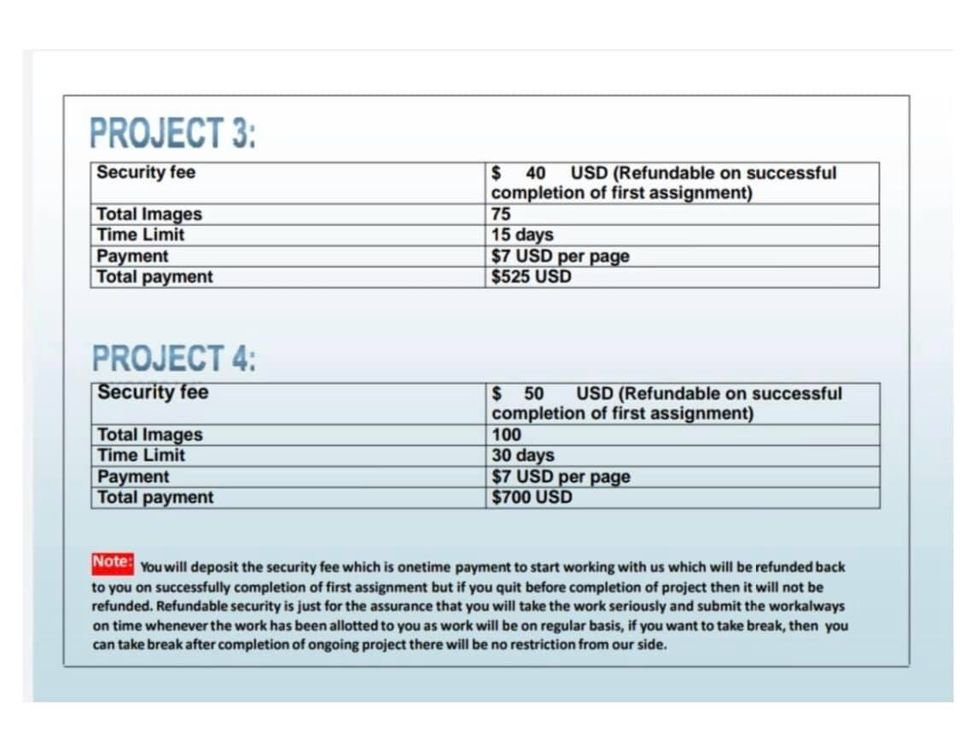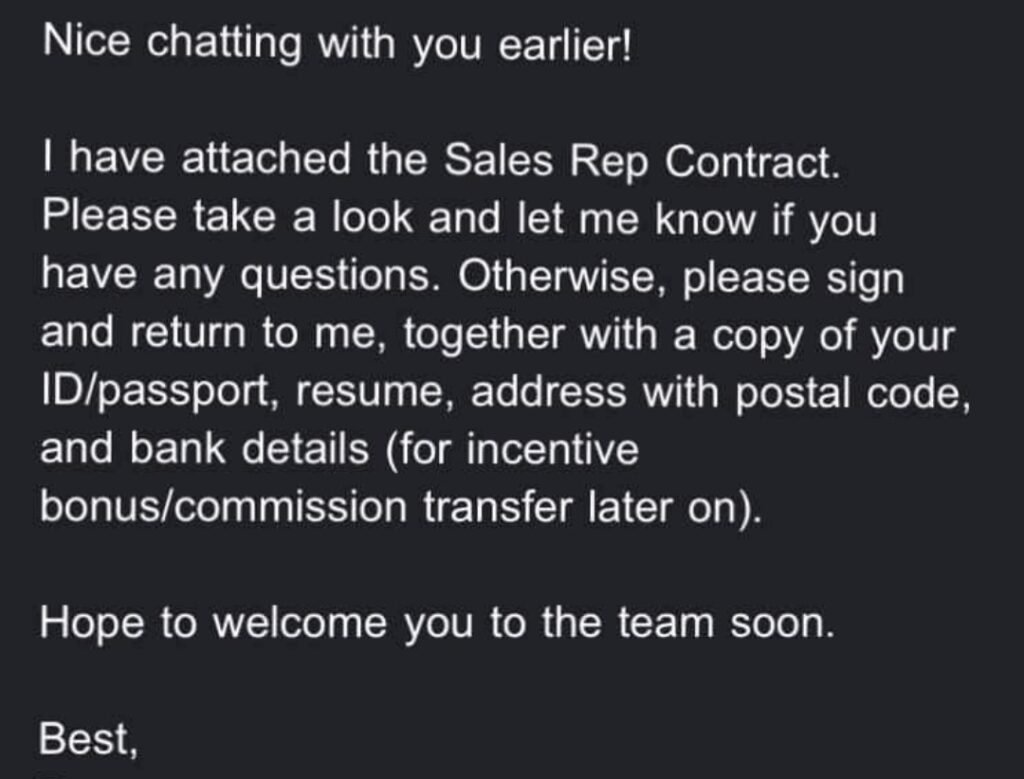With the sudden influx of online applicants also made them a target of online job scams. The most vulnerable are beginner freelancers and those desperate to find jobs fast. Don’t fall for any of these schemes! It’s important to be proactive and learn about them before they try to scam you.
Top Online Job Scams
Below is a list of the most common online scams that mostly target new freelancers:
1. Security fees

You went through the application process and finally got hired. Everything seems legitimate, from the job post, the company website, to the screening process, except for one thing. During the onboarding, they inform you that you must pay a ‘refundable’ security fee before starting your work.
Many freelancer scams will bait you through the whole job application process. In desperation to get a job and start working, you pay the security fee, still relying on their validation that you have already passed the screening. After which, they suddenly block you from all communications, and you have no way of refunding the fees.
2. Identity theft

The usual scenario for identity theft is that the scammer will ask for a copy of a valid ID, birthdate, selfie, and other personal information. They will tell you it is standard onboarding procedures for banking, salary, and tax requirements. Once they obtain your information, they stop replying and block you from all communication. They use this personal information to create fake accounts or access online banking.
3. PDF to MS word

These prevalent job posts attract applicants with a promise of a high salary and the easy task of converting PDF files to MS Word documents. People get scammed because the files sent to them often have malware or a link to a phishing site that gains access to their system and personal account login information.
4. Crypto scam

There are different types of crypto scams, such as fake crypto businesses swindling you into fake transactions, pyramid schemes, and those asking you to sign up to a crypto site using their link. They intend to gain access to your digital wallet or use you to create fake transactions.
5. Unpaid sample work

Employers will often give you a sample task to gauge your technical skills if you are applying as a writer, graphics designer, or video editor. This requirement is acceptable but only to a certain extent.
If the task is simple and will only take you a few minutes as part of the application process, it’s okay to oblige and show them how you work. However, it may be a freelancing scam if the task is too tedious and will take several hours of your time without payment. They do this to make a profit from the free work you provided as an applicant.
As a rule of thumb, always ask for a fee if they want you to submit complete sample work or ask if you can show them your portfolio of previous work done instead. A legitimate employer knows the value of the time they are asking from you and will pay you for your work, even if it’s part of the application process, with no assurance of hiring.
6. Unusually high salary

The easiest way to entice applicants to apply for a job post is a high salary. It is one of the first things job seekers consider when applying for a job. If you’re a seasoned freelancer, you already know the going rate of many freelancing jobs. Anything unusually high, especially for an entry-level position, is considered an online scam.
7. FB Marketplace jobs

Scammers hire you to post ads on Facebook Marketplace, promising a weekly payout. You post their ads, you get flooded with messages related to those ads, and Facebook flags your account, banning you from FB Marketplace. These scammers use other people’s accounts to flood FB Marketplace with their ads and scam people who respond to those ads.
How do I know if a freelancer project is legit?
If you see a job post online, make sure it discloses the company’s name. Do deep research about the company, and if you don’t find too much information, you can ask around in online job forums if they’ve heard of it. Being meticulous about employer details is how to avoid freelancer scams.
How do I protect myself as a freelancer?
If you’re a beginner freelancer, you should stick to legitimate freelancing platforms and job sites such as Upwork, Fiverr, Freelancer.com, LinkedIn, and 99designs. These platforms are well-established, screen both employers and employees, establish rules, and provide a safe payment platform.
Scam jobs often have a less meticulous screening process and don’t conduct video interviews. Most only use phones and chats for interviews and screening. It’s essential to be cautious about the information you provide online and ensure you give your contact details to legitimate employers who will maintain confidentiality about your personal information.
Takeaway
Avoid suspicious job posts on social media platforms, and always be vigilant about the links you are clicking to avoid identity theft. If you feel something is wrong with the job post, chances are, you are right. Now that you know the top red flags to avoid, be sure to avoid these offers at all costs.
Want to be guided by experts in online job applications? Enroll in one of our in-depth online courses and we will guide you all throughout the way — even after you’re hired.

